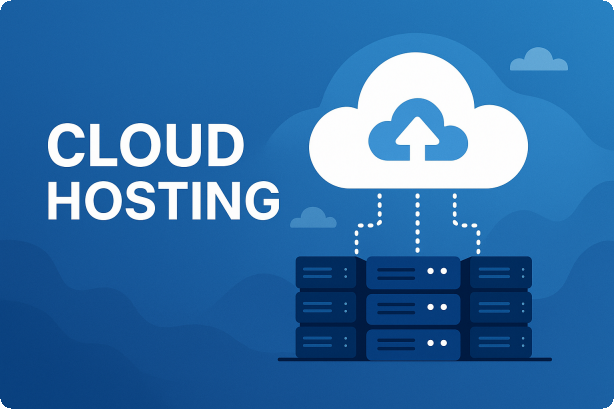
Cloud hosting provides websites and applications with scalable, on-demand server resources distributed across multiple servers or data centers. It ensures high availability, fast performance, and the ability to handle variable traffic without interruption. This type of hosting is ideal for businesses, developers, and websites that require flexibility, reliability, and efficient resource management.
Best Cloud Hosting Providers

Starts at $4.50/mo

Starts at $7.99/mo

Starts at $5.00/mo
We may earn a commission if you make a purchase through any of these providers.
Cloud hosting relies on distributed server infrastructure, scalable resources, and reliable management tools to maintain performance and availability. DreamHost offers cloud hosting with flexible resource allocation, strong uptime, and support for a variety of applications. Hostinger delivers cost-efficient cloud hosting with modern infrastructure, performance-focused configurations, and reliable uptime for responsive websites. Inmotion Hosting provides cloud hosting solutions with scalable resources, managed support, and stable infrastructure to ensure consistent performance for high traffic sites.
Cloud Hosting Features
Scalability and Flexibility
One of the key features of cloud hosting is its scalability. Cloud hosting providers offer the ability to easily scale resources up or down based on demand. This ensures that websites and applications can handle sudden traffic spikes without experiencing performance issues. Users have the flexibility to add or remove resources such as CPU, RAM, and storage, enabling them to adapt to changing requirements efficiently.
High Reliability and Uptime
Cloud hosting employs redundancy measures to ensure high reliability and uptime. With multiple servers in the cloud infrastructure, websites and applications can seamlessly switch between servers in case of hardware failure or maintenance. This redundancy minimizes downtime and ensures that websites and applications remain accessible to users, enhancing the overall user experience.
Load Balancing
Cloud hosting utilizes load balancing techniques to distribute incoming traffic across multiple servers. This evenly distributes the workload, optimizing resource utilization and preventing any single server from being overwhelmed. Load balancing enhances performance, reduces response times, and improves the scalability of websites and applications.
Data Backup and Disaster Recovery
Cloud hosting providers typically offer regular data backups and disaster recovery solutions. With data distributed across multiple servers, the risk of data loss due to hardware failures or disasters is minimized. Cloud hosting providers implement robust backup strategies and disaster recovery plans to ensure the safety and integrity of user data.
Pay-as-You-Go Pricing
Cloud hosting often follows a pay-as-you-go pricing model, allowing users to pay only for the resources they consume. This flexibility makes cloud hosting cost-effective, as users have the ability to scale resources up or down based on their needs. Additionally, users are freed from the burden of hardware maintenance and infrastructure management, further reducing costs.
Cloud Hosting Benefits
Scalability and Resource Efficiency
Cloud hosting allows businesses to respond instantly to changing demands without over-provisioning resources. Companies can maintain smooth website operations during peak traffic and expand their applications as their audience grows. This flexibility reduces downtime, avoids lost revenue, and ensures a seamless user experience. By efficiently matching resources to actual needs, businesses save money while maintaining high performance and reliability.
Improved Performance and User Experience
With load balancing and the distributed nature of cloud hosting, websites and apps experience improved performance and faster response times. The availability of multiple servers ensures that resources are efficiently allocated, resulting in a smoother user experience and reduced latency.
High Reliability and Uptime
Cloud hosting’s resilient infrastructure ensures that websites and applications remain accessible even during hardware failures or maintenance. Users enjoy uninterrupted access, which builds trust and improves engagement. Businesses can confidently run critical operations without fear of unexpected downtime. Continuous availability strengthens brand reputation and enhances customer satisfaction.
Enhanced Security
Cloud hosting providers implement robust security measures to protect user data and infrastructure. These measures often include firewalls, encryption, regular security updates, and monitoring systems. Cloud hosting’s distributed architecture also provides an added layer of security as data is stored across multiple servers.
Cost Efficiency
Cloud hosting’s pay-as-you-go pricing model enables businesses to optimize their costs. Rather than investing in expensive hardware and infrastructure, businesses pay only for the resources they need. This scalability allows businesses to align their hosting expenses with their actual usage.
